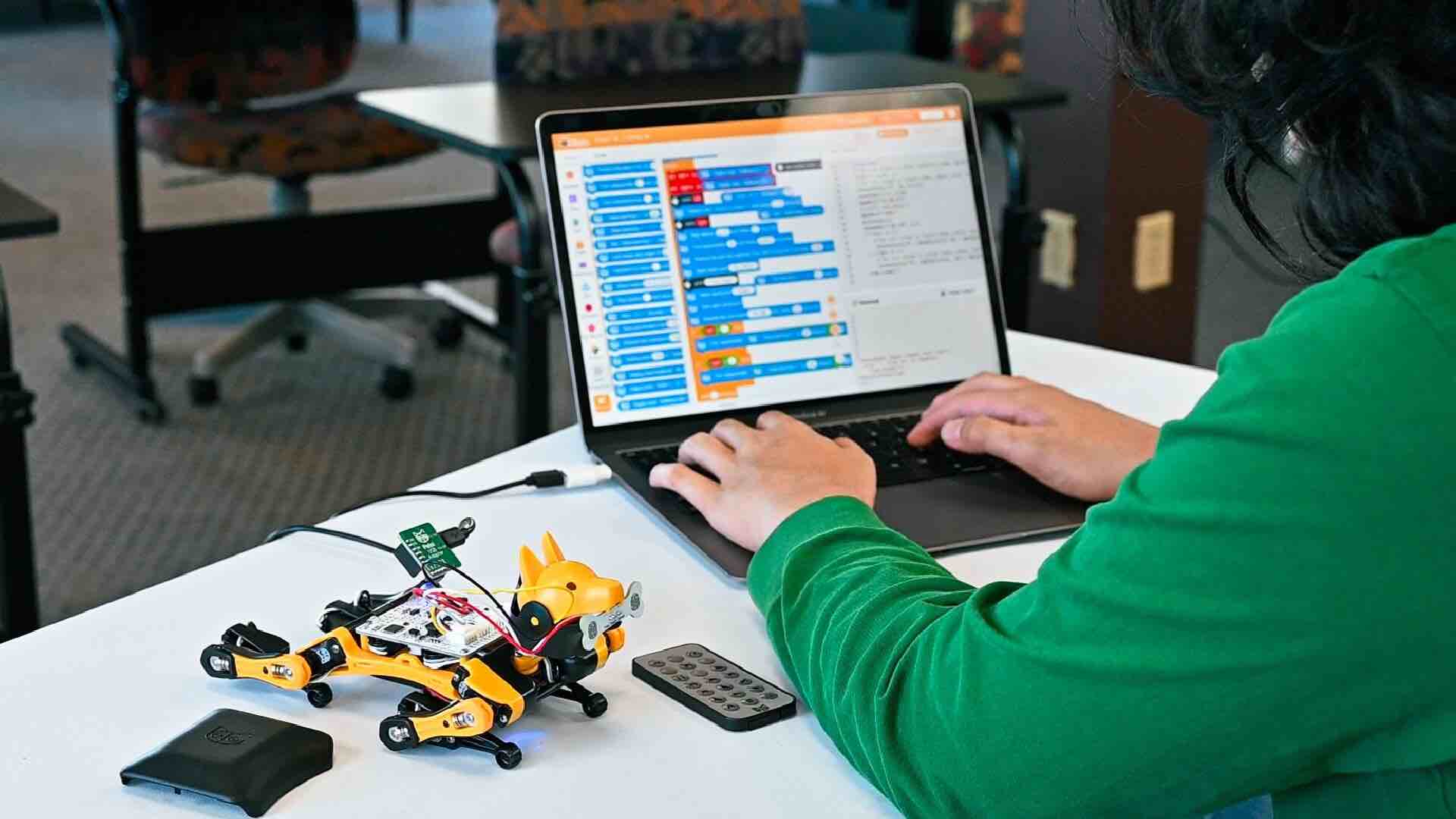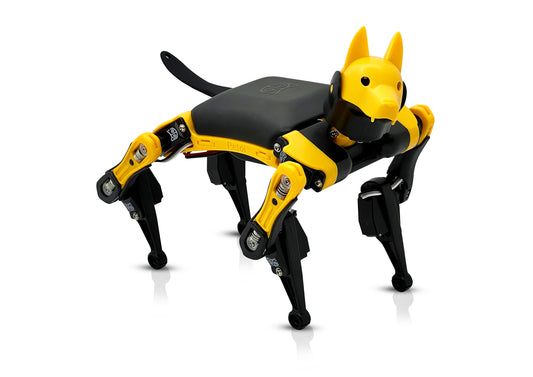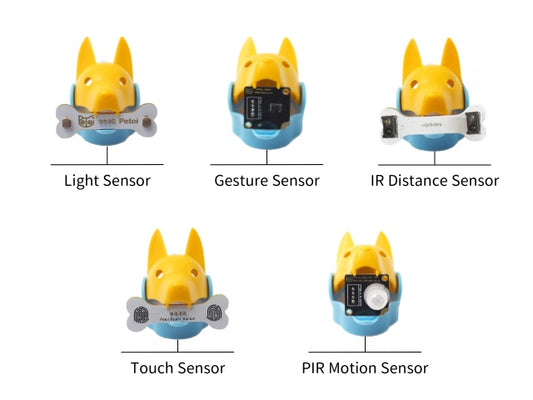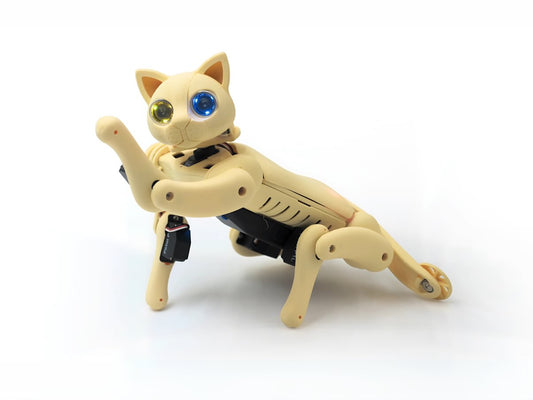With the advent of AI, robotics has recently made some huge strides. Artificial Intelligence has not just made robots smarter, but it has also contributed to making them more autonomous and functional. While robots were programmed to jump, climb, and run, they can now be expected to perform more complex and dynamic movements like parkour and complex navigation due to this synergy with AI. If you have kids who are just getting into robotics, or your teenagers are dabbling in the world of STEM & engineering through robotics, this article will serve as a comprehensive guide.
Today, we'll touch on the current state of AI in robotics and take a sneak peak at some stellar examples. Most importantly, we'll also explore why this is extremely relevant for young students: especially teenagers and take a look at some existing solutions that combine these two technologies perfectly!
Current State of AI in Robotics
So how does artificial intelligence actually help the general robotics space?
Artificial Intelligence (AI) significantly enhances the general robotics space in several ways, particularly by improving the capabilities, efficiency, and autonomy of robots. Here are some key ways AI is advancing robotics:
1. Autonomy and Decision Making
AI allows programmable robots to think for themselves. Instead of needing detailed instructions for every task, AI helps robots figure out what to do on their own, making them more independent.
2. Perception and Computer Vision
AI gives robots "eyes" that can see and understand their surroundings. This helps them recognize objects and navigate through different environments, making them more aware of what's around them.
3. Natural Language Processing and speech generation
AI enables robots to understand and talk to people in everyday language. This makes it easier for humans to give robots commands or ask them questions without needing special codes or instructions. Robots can answer with AIGC(artificial intelligence-generated content) text and speech generation.
4. Learning and Adaptation
AI helps robots learn from their experiences, much like how humans learn from trial and error. Over time, they get better at tasks by remembering what worked well and what didn’t.

A new sub-field has emerged recently: embodied robotics. It focuses on robots that interact with the physical world through their bodies, rather than just processing data or performing virtual tasks. Embodied robots need to adjust their behavior based on feedback from their environment. As they physically interact with objects or navigate through spaces, they use AI to learn from those interactions and improve over time.
For example, an embodied robot with robotics arms and grippers might learn how to grip different objects more effectively by physically trying various methods and refining its technique based on feedback. This is a direct application of the principles of embodied cognition, where the robot's physical body plays an essential role in its learning process.
5. Collaboration and Interaction
AI allows robots to work well with humans by predicting what people might do next and responding appropriately. This makes it safer and easier to share tasks, like in factories or healthcare settings.
6. Optimization and Efficiency
AI helps robots work faster and smarter by constantly making small adjustments. This means they can complete tasks more quickly and with greater precision, which saves time and resources.
Examples of AI-Infused Robots (& AI Project robots)
-
Autonomous Vehicles: Companies like Cruise are developing self-driving cars that utilize AI for real-time navigation and decision-making, significantly enhancing transportation efficiency.

- Collaborative Robots (Co-bots): In manufacturing, co-bots work alongside humans to perform tasks such as assembly and quality control, improving productivity while ensuring safety.
- Agricultural Robots: AI-driven robots assist in farming by monitoring crop health, optimizing resource use, and automating labor-intensive tasks, thus increasing efficiency and yield.
-
Healthcare Robots: AI robots are being used for patient care, assisting in surgeries, and managing logistics within hospitals, which enhances patient outcomes and operational efficiency. (As you can see in the picture below, with AI robots around, one big winner will be the healthcare industry)

Relevance for Teenagers and Young Students
So why should we focus on teenagers and AI robotics? For teenagers and young students interested in robotics, the current landscape presents exciting opportunities. Just the very process of building your own robot is very rewarding as the connection between hardware and software is a brilliant way to light a spark in a young students mind. Not only does DIY robotics create a foundation for physical computing, it also sets a clear path for future STEM learning! As AI continues to evolve, the demand for skilled individuals who can design, manufacture, program, and maintain these advanced smart robots is growing. Engaging & learning with educational robots now can lead to careers in various fields such as engineering, healthcare, and new technology. Educational programs and workshops focusing on robotics and AI are increasingly available, allowing students to gain hands-on experience with the technologies that are shaping the future. By learning about AI project robots, young learners can prepare themselves for a future where these tools will be integral to many industries, fostering innovation and creativity in problem-solving. In summary, the fusion of AI and robotics is not only revolutionizing industries but also creating pathways for the next generation to engage with and shape the future of technology.
The Recommended solution: Petoi Bittle X Robot Kit
If you're still reading this, chances are you get an idea of the incoming robotics revolution, which will accelerated by AI, You also may have learned about the value and importance of introducing young students and teens into AI Robotics early. But with so many options available, which solution is the best for teenagers?
The answer: Petoi Bittle X AI Robot Dog Kit (with the Sensor Pack)
Versatile, easy to use, and powered by OpenCat, a top open source robotics framewok, Petoi Bittle X is a fantastic Arduino robot kit for teenagers looking to venture into the field of engineering with their first STEM Arduino robotics kit. Bittle X is a cute Arduino robot dog that is a huge hit in classrooms around the world due to its unique personality, configurability and educational compatibility.
Bittle X is one of the best programmable robot kits you can get on the market, not just because it is fun to build. Educators adore the depth of teaching and learning that go hand in hand with this coding robot. Petoi's brilliant educational robotics curriculum is designed with the student in mind, whether students are starting with robotics and have no prior coding knowledge or if they are looking to expand on their existing programming capability with challenging robot projects, Petoi's free curriculum has something for everyone, even without prior programming knowledge:
- the free Block Based robotics coding curriculum developed for elementary and middle school students. Students can code with Petoi Coding Blocks.
- the free C++ robotics coding curriculum made for middle/ high school or students. Students can code with Arduino C++ IDE.

Starting at only $279, Bittle X is a fantastic affordable solution for teens and college students looking to get into AI Robotics. We also recommend getting the sensor packs along with the coding robot for a more enhanced learning experience of IoT(Internet of Things) sensory programming. For example, users can program Bittle robot dog to react differently to different hand gestures with the Petoi gesture sensor.
Want to learn about how you can use Bittle with ChatGPT?
Learn how Ömer from Turkey explored how to integrate ChatGPT with Petoi Bittle to make it even more intelligent!
For special education pricing and more information about the sensor packs, click on the image below.











